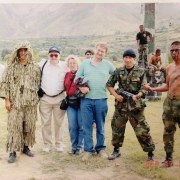HOW TO GET YOUR OWN BANANA REPUBLIC?
Often, Mila (or Millie as I will always call her) and I are being asked how we met. After all, many people have their interest piqued when they see a native from Belgium, married to a cute Peruvian who is – to say it mildly – a few years younger.
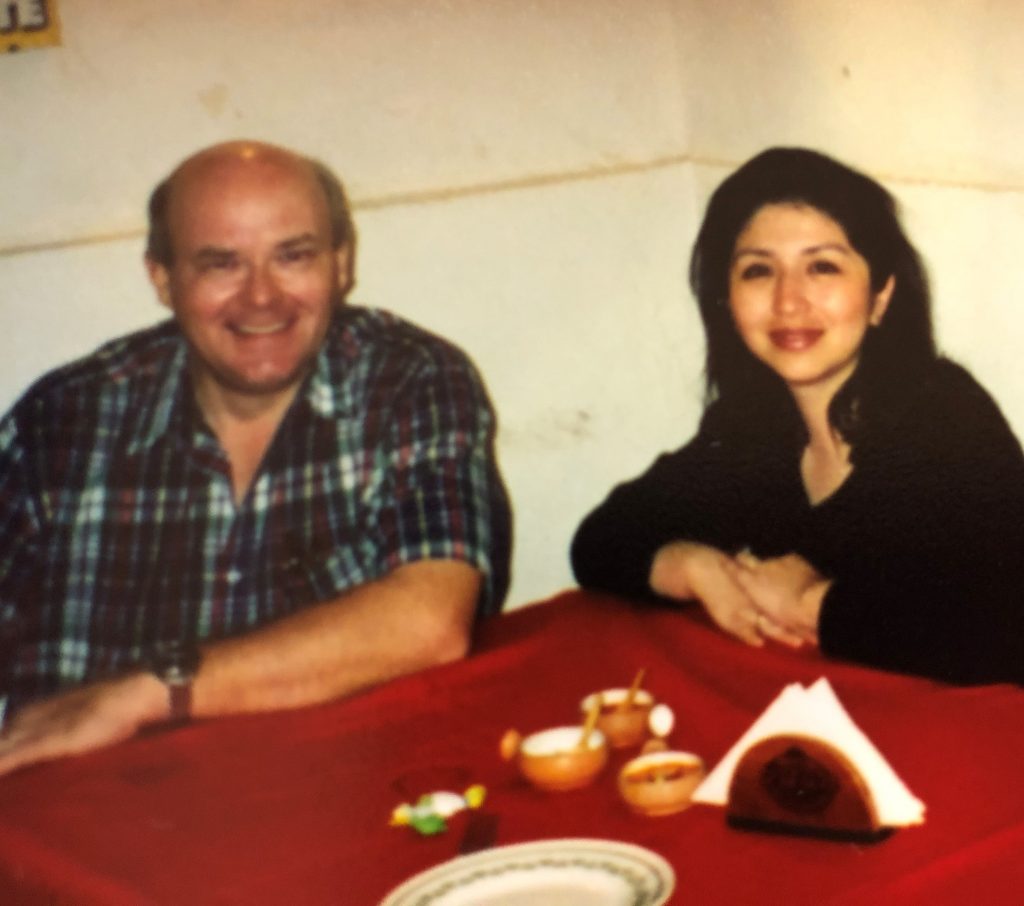
So, without going into too many details, it all started when we volunteered to help during medical missions in a highland city of Huánuco, in Peru. Together with some friends from the Rotary Club of Wheaton, near Chicago, we had started these medical missions to help the poorest of the poor in the Peruvian Sierra. I was in charge of logistics and had hired Mila to assist me. Peruvian by birth but living in Chicago, she was of a tremendous help with our efforts and, much, much later, after many years and failed marriages, we finally hooked up and, as they say, went to the next level of our relationship. This is the story in a nutshell. If you want more details – and, oh boy, there are some fun ones – you will have to get together with us and ply us with lots of quality liquor. So, in the meantime, this is as much as we can tell you in this blog. Verba volant, scripta manent, as the Romans used to say, so we will not put too much in writing…
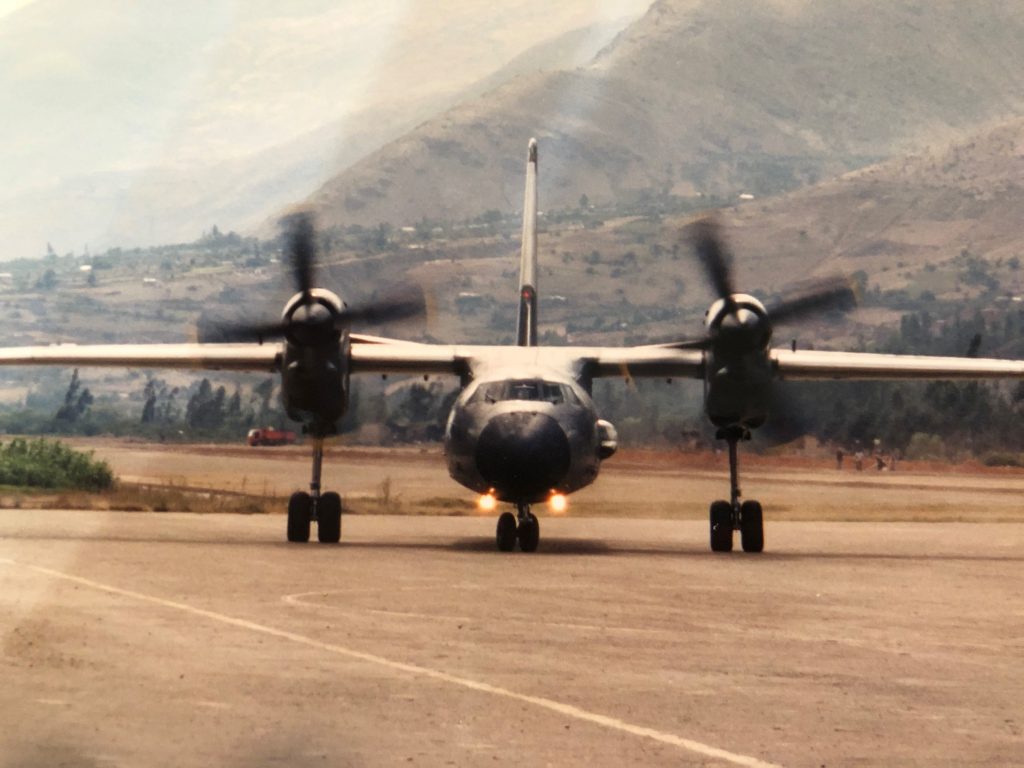
During these medical missions we saw some horrible and unbelievable situations. Mila and I can spend hours talking about these mission memories. Many of them will still bring tears to our eyes. One of them was quite “tragicomical” and, when we tell people this story, they just stare at us with disbelief.
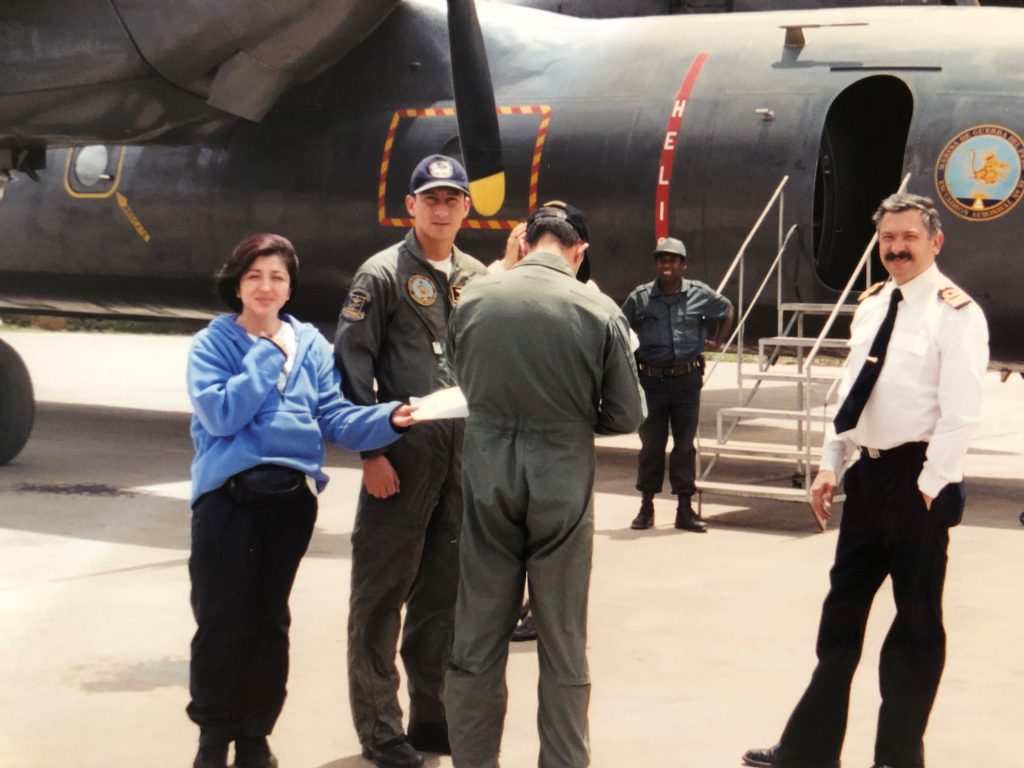
It was September of 2000 and this was one of our largest missions ever with over one hundred volunteers. We even had chartered Russian-made Antonov 32 airplanes from the Peruvian Navy. Doctors, nurses and other volunteers had traveled from all over the United States, Canada and Europe to serve their fellow human beings. Our heroes were people like Bill, Claude, Gordie, Mary, Don, Carl, Kurt, Katie, Marion, Efrain, Ken, Sandra and so many more, medical specialists or not. They all flew in at their expense to come and help. The local authorities had put the main hospital, its operating rooms, beds, doctors and nurses at our disposal and we had taken over a small unused clinic as a triage center. Our surgeons and nurses would be working alongside the local ones and show them new techniques and train them on equipment that we had brought along in several shipping containers.
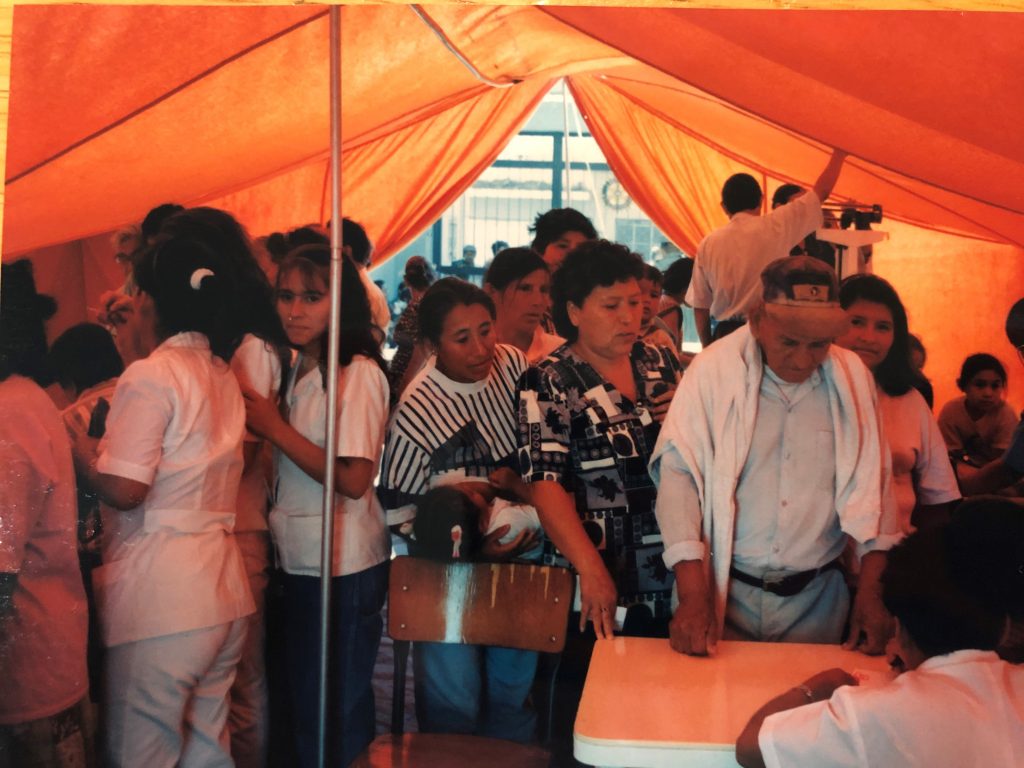
When we arrived, poor people were lining up by the hundreds at the triage center. Some of them had traveled several days from far away places in the mountains and from the jungle, many of them suffering from conditions that you would never see in the United States. None of them would be charged a dime for their surgeries, care or medications.
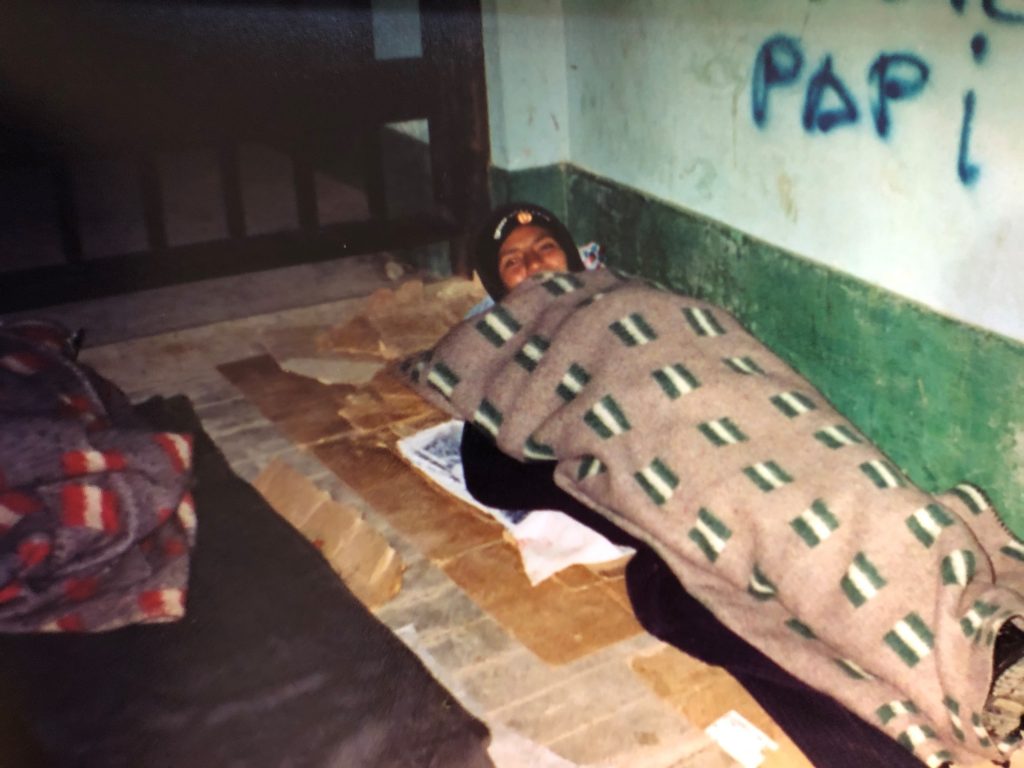
We had barely scheduled our first surgeries that some of the local doctors – who I was told had some shadowy connections to the former Shining Path – decided to call a strike and told their nurses and hospital workers that they were not allowed to work with us, thus effectively shutting down the hospital and our mission. They considered us competition and feared that we were taking their livelihood away. This was ridiculous because we were going to treat patients that they would never see because these poor people could not pay for their services or because they could not do the kind of surgeries our doctors would perform. On our first day, we would have to pack up again and send everybody back home?
As our missions were coordinated with the local Rotary Club, we had an emergency meeting with their Board. One of their members was the Colonel in charge of the local military base. The role of the local base was to fight the remaining elements of the Shining Path terrorist organization and their allied narco-terrorists. He was a rough looking, no-nonsense dude who had overseen some really nasty counter-terrorism campaigns. He got up and told our group that, as the political-military Chief of the region (El Jefe Politico Militar), he could declare the state of emergency and force the hospital to remain open.
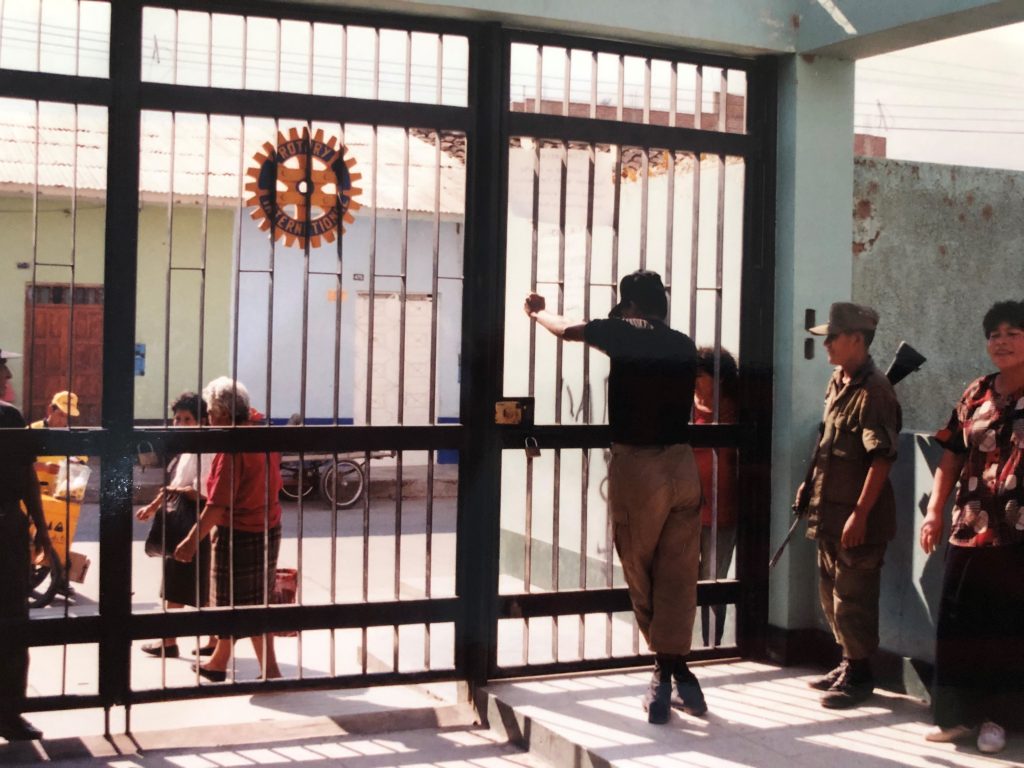
Having no other option, we accepted his offer. It was that or having to disappoint hundreds of suffering patients. A very short time later, he showed up again, accompanied by a truckload of heavily armed commandos and marched inside the hospital, then gathered the rebellious doctors in a room and, behind closed doors, told them in no uncertain terms to get out of town until the end of our campaign, or else. The local hospital workers and nurses were only too happy to be able to work with our volunteers. From there on, we got full speed ahead and started to help the poorest of the poor under the watchful eye of the fierce looking commandos. The place had now been turned into our own “banana republic” with our private army.
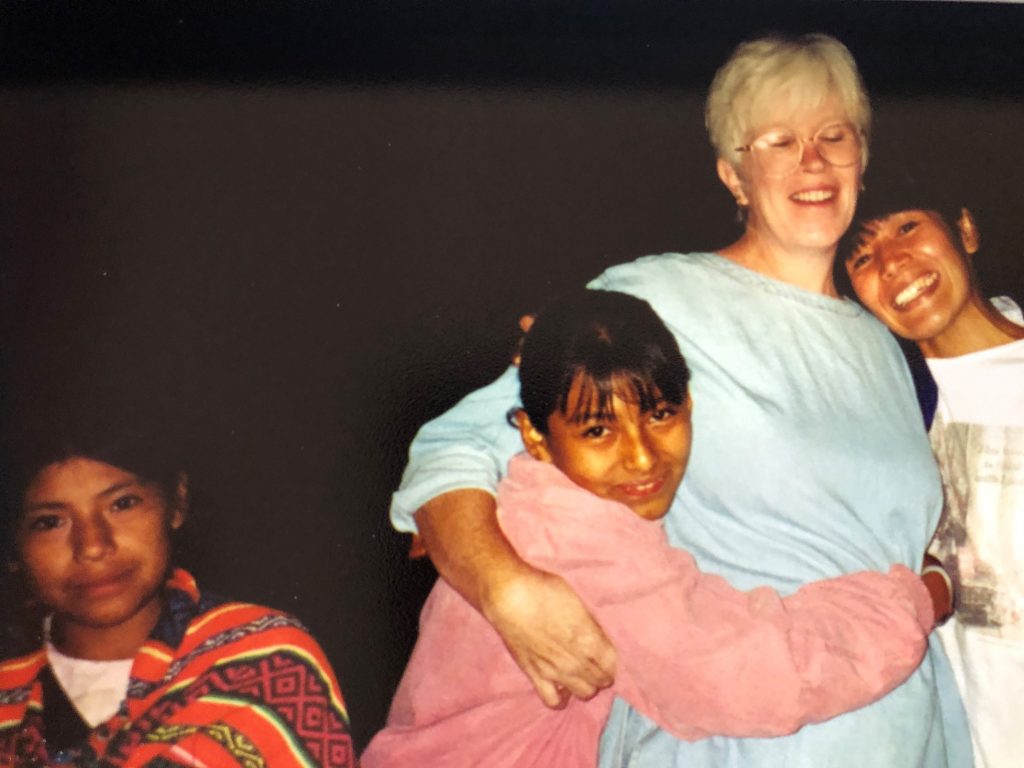
Many poor people were helped during that week, and we received so many unbelievable expressions of gratitude. Some patients would bring live chickens as payment, which we, of course, refused. We had so many people hugging us. Reminiscing about this, I can understand the expressions of gratitude our healthcare workers are receiving during this pandemic from their grateful patients.
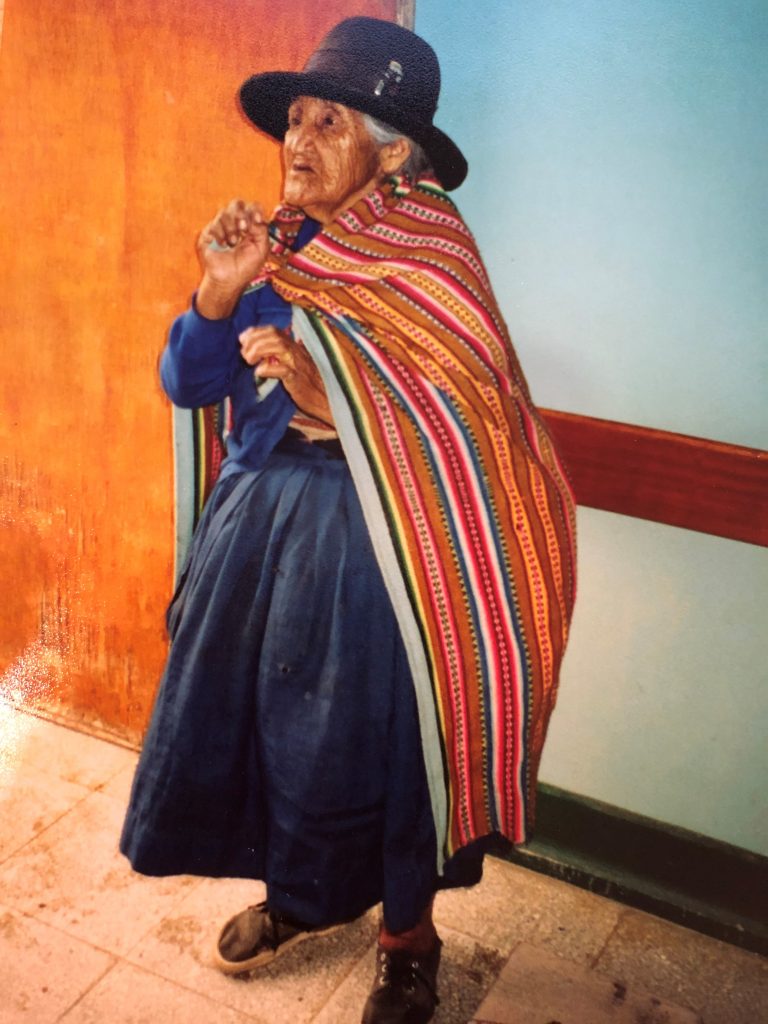
After a week of hard work – doctors and nurses started at 07:00 and often worked until late in the night – the Colonel wanted to express his appreciation by inviting all the volunteers to the army base for a traditional Pachamanca, the Peruvian equivalent of a Luau. We were bought by bus to the base where the commandos showed us their skills and made a presentation of their training.
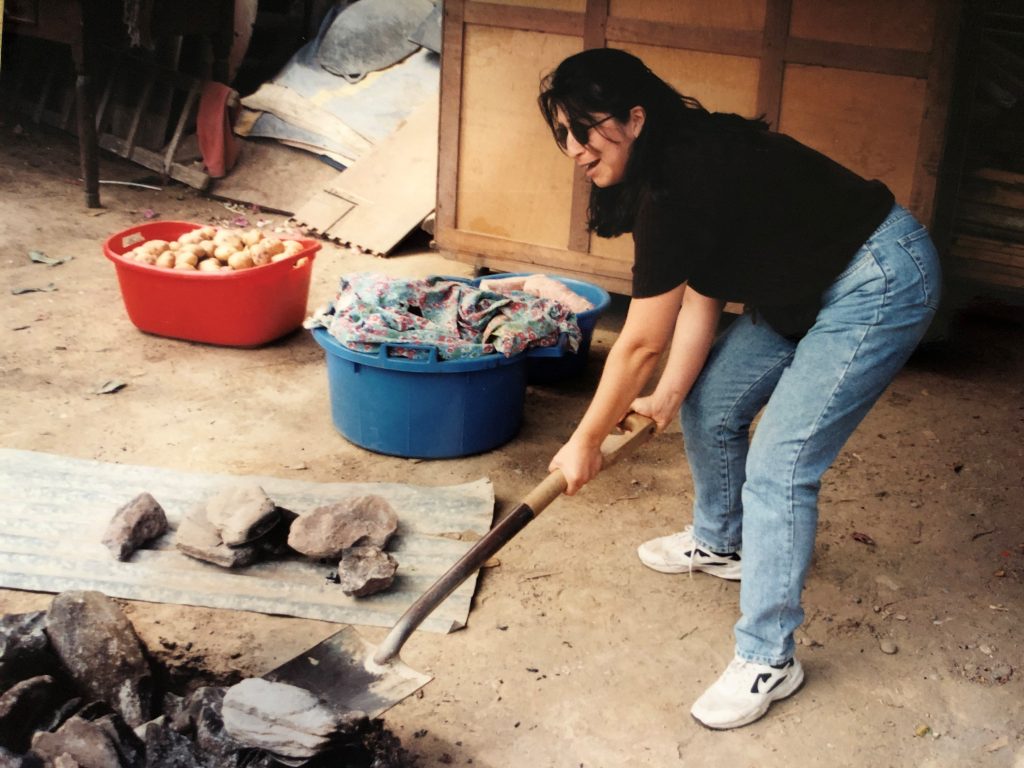
There was hand to hand combat with sharp knives, a freeing of hostages from a “terrorist” house and what I called the hot potato training. About ten commandos were standing waist deep in a circular trench. In the center of the circle a pit had been dug. One of the commandos took a hand grenade, pulled the pin and threw it to the guy next to him in the trench. The recipient took it as a hot potato and threw to the next guy and so on until they had counted down to almost the moment the grenade would blow up. The last soldier holding the grenade then threw it in the pit in the center of the trench and then they all dove down into the trench. The grenade blew up throwing a large amount of dirt and smoke in the air. Thank goodness, we were at a safe distance.
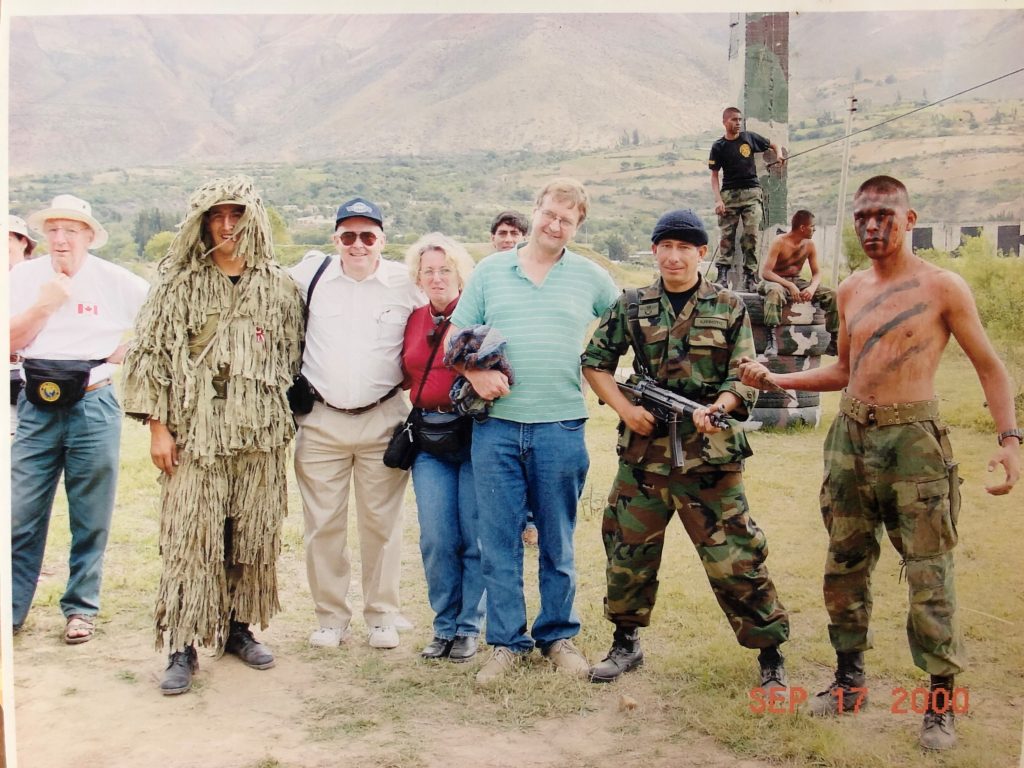
Another part of the training consisted of coming down, at full speed on a zipline from up the mountain, across the river, down to the camp. However, this was not your recreational zipline experience. For one, the soldiers had to hang on for dear life to the pulley going down the line without a safety harness but, when they crossed the river, a dynamite charge was set off showering the poor guy with water, mud and pebbles. They really had to keep their cool.
The Colonel then asked if some of us wanted to volunteer to come down that zipline. He promised we would have a safety harness and no dynamite would be blown up. Our fearless “Admiral” Mila was, of course, one of the first ones to volunteer. She went down the river where they brought her to the other side in an inflatable dinghy. She then had to climb all the way up the slope of the mountain to where the zipline was secured.
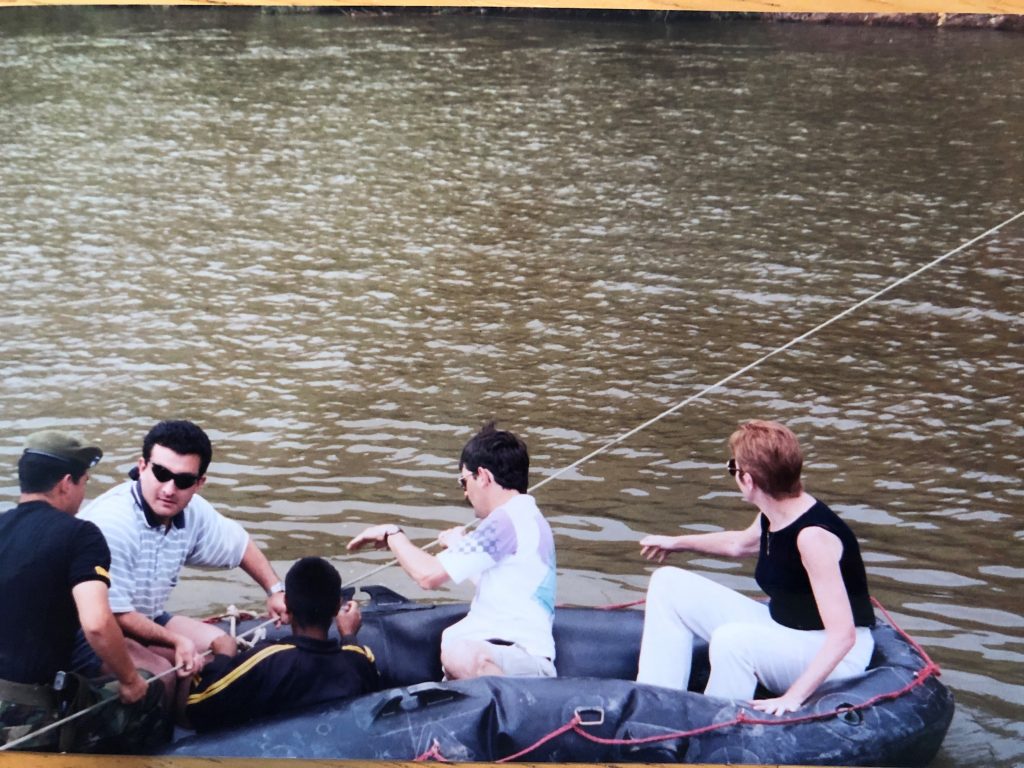
When she got there, however, she saw how far the zipline went down and how steep it was, and she tried to wiggle her way out of this scary experience. The soldier in charge of zipline told her that, no way, could she go back and there was only one way back to the base; down the cable. She reluctantly put on the harness and stepped to the edge but froze. She just could not make the jump. These commandos don’t put up with any nonsense and before she knew it, he had pushed her, and she went screaming down the cable. When I say “screaming”, that is exactly how she raced down. When she arrived at the bottom, her legs were shaking but admitted that it was one heck of a thrill.
It certainly must have whetted her appetite as she had many servings of the Pachamanca and quite a few Cusqueña beers.
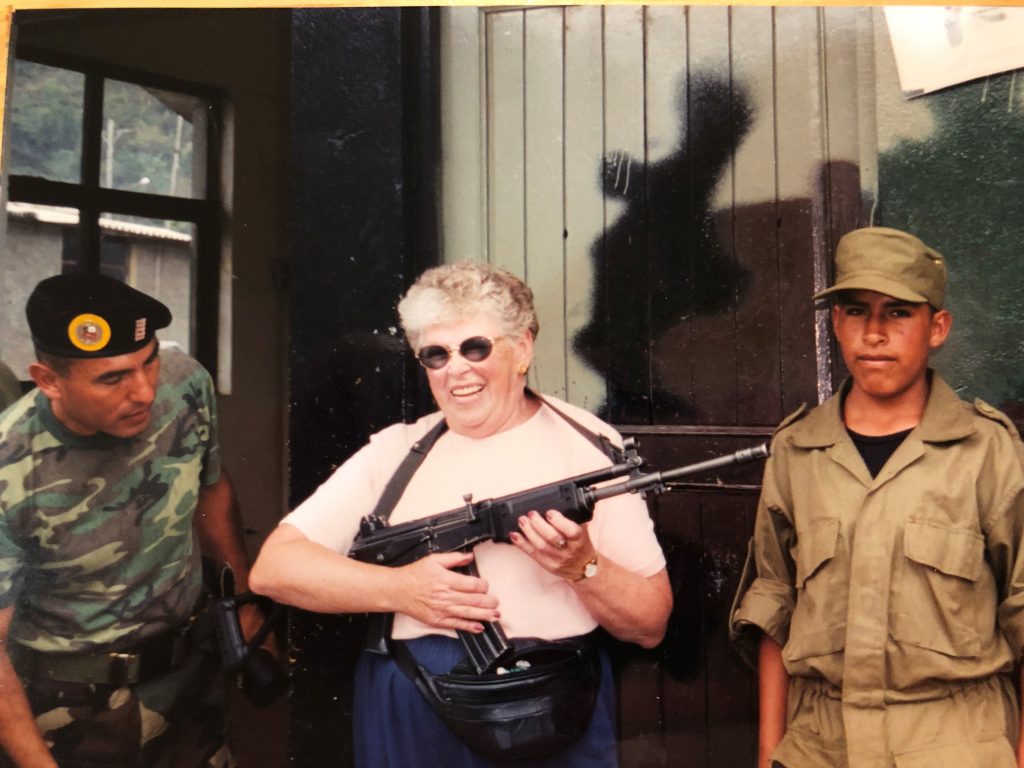
Before we went back to our hotel, we profusely thanked the commandos and their officers for this great experience and for having helped us during the past week with our medical mission. Several of our volunteers posed with the commandos and some even were allowed to hold their weapons.
So, here you have it: how I met Mila and how we had our own banana republic. It would take us another six years before we started dating before finally getting married in 2008. It’s been smooth sailing since.
As the Chinese say: “May you live in interesting times”. No complaints here.
I know that our recent posts have not had anything to do with sailing. I promise you some sailing stories in my next posting.
Fair winds, stay healthy and safe. And remember…

Capt. Jean De Keyser.

